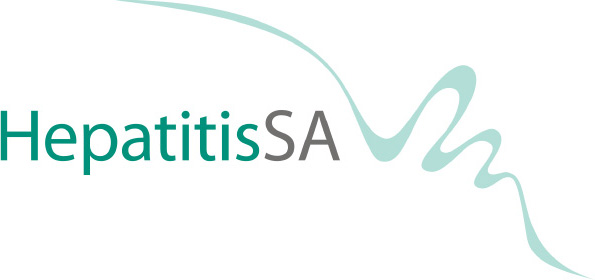Until recently, the presence of hepatitis C virus in the blood is detected with a Polymerase Chain Reaction (PCR) test on blood samples.
Nowadays hepatitis C rapid tests are available at selected locations around Australia. These diagnostic tests require only a drop of blood collected via a fingerstick, giving results within an hour. These tests can be given at the point of care, without the need to send samples to laboratories.
To find out if hepatitis C rapid tests are available near you, call Hepatitis SA on 1800 437 222. If you are interstate, call your local hepatitis organisation. Read on for information on current conventional hepatitis C testing.
Hepatitis C Antibody test
In Australia, conventional hepatitis C testing involves a screening test – the hepatitis C antibody test – given before the PCR test. This hepatitis C antibody test shows whether you have ever come into contact with the virus by looking for hepatitis C antibodies produced by your body to fight against the virus. It is used as a screening test before giving someone a PCR test.
A hepatitis C antibody positive test result simply means that at some stage of your life you have been exposed to the hepatitis C virus. It does not indicate whether or not you still have hepatitis C. After clearing the virus a person is no longer infected but will usually remain antibody positive for life.
While antibody test results are usually positive or negative, they can sometimes return an indeterminate result, which may require a follow-up test. Repeat tests are also performed to confirm positive results.
The body may take up to three months after initial exposure, to develop antibodies although this "window period" is usually six weeks. Antibody tests carried during this period may not yield accurate results.
Polymerase Chain Reaction (PCR) test
In contrast to the antibody test, which tests for the presence of antibodies, the PCR test detects whether the hepatitis C virus itself is present. This is done by using a laboratory technique to amplify the genetic material of the virus in a blood sample.
There are three types of PCR test:
- The PCR viral detection test, or qualitative test, is used to determine if a person has the virus. It is often used to confirm antibody test results. A hepatitis C PCR positive result means there is detectable virus in the person’s blood and that they have a current hepatitis C infection.
- The PCR viral load test, or quantitative test, measures the amount of hepatitis C virus (HCV) circulating in someone’s blood. This test is used to monitor people on treatment and help determine if treatment is working. It can also help in determining the likelihood of response to treatment.
- The PCR genotype test looks for the virus, and determines which HCV genotype a person has. Genotype testing is routinely performed prior to therapy, as the genotype a person is infected with can influence the length of treatment and its chances of success. Find out more about hepatitis C genotypes.
PCR tests can be expensive, but are covered by Medicare under certain circumstances.
Liver function test
A Liver function test (LFT) is a blood test used to determine if the liver is functioning properly. Liver damage – which can be caused by many things, including hepatitis C – causes liver cells to release certain enzymes into the bloodstream. LFTs work by measuring the levels of these enzymes.
For hepatitis C, the most relevant enzyme measured by a LFT is Alanine Aminotransferase (ALT), which is released when liver cells are inflamed. Elevated ALT levels can be an indication of hepatitis C infection, although there are many other causes.
FibroScan
A FibroScan machine is a relatively new device that uses ultrasound to assess the 'stiffness' of your liver, and thus the likelihood of damage or scarring being present. The procedure only takes 10 to 15 minutes and unlike a liver biopsy, it is entirely non-invasive.
While the procedure is able to detect mild liver damage and cirrhosis, your specialist may still request a liver biopsy to assess more accurately, the level of damage present.
Liver Biopsy
A liver biopsy can give the most accurate picture of your liver's condition and may be recommended if you are considering treatment. It is a minor surgical procedure that involves taking a small sample of your liver and examining it under a microscope. While generally safe, there are some risks involved and the decision to have a liver biopsy should not be taken lightly.
Since 2006, a liver biopsy is not required to qualify for government-funded hepatitis C treatment.










